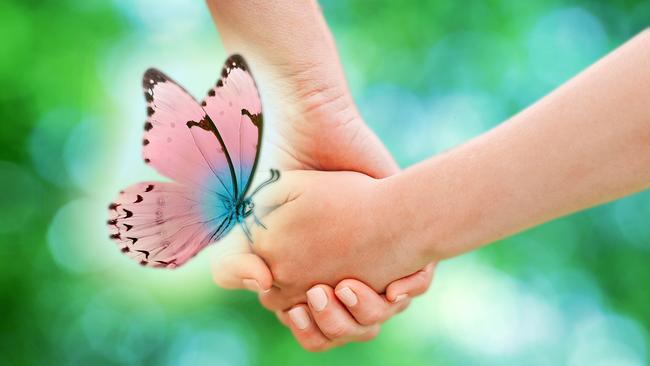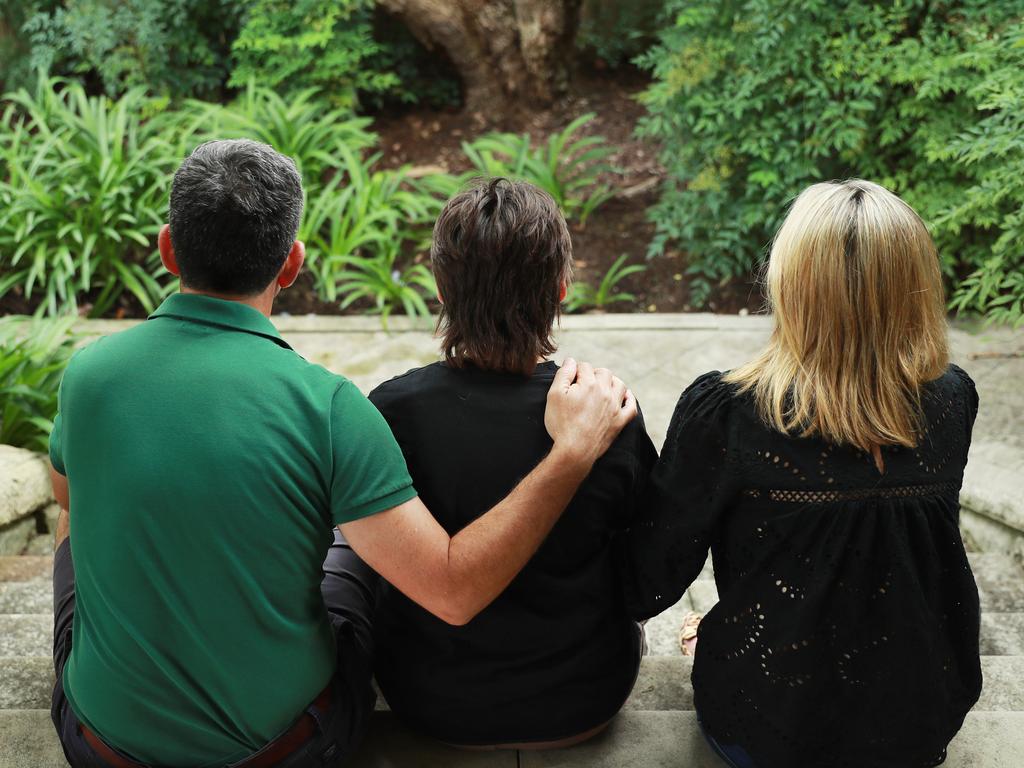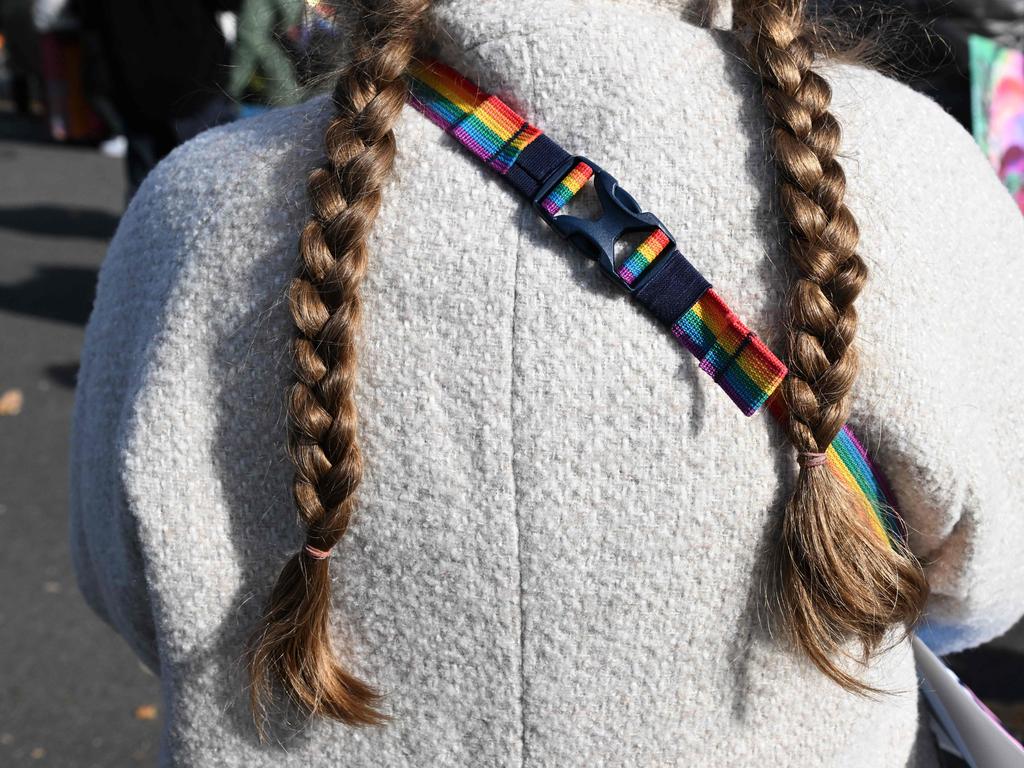The quiet courage of parenting: a journey through transition
Determined to support their child, Kate and David learn that grief and love are not mutually exclusive.

Parenting is an act of love defined by its unrelenting contradictions.
While this story centres on one child’s transition, it resonates with anyone who has faced tremendous challenges with their children. Whether it’s navigating mental health struggles, chronic illnesses, eating disorders, self-harm or identity shifts, the common thread is the complex and often isolating journey of loving and supporting a child through life’s hardest moments.
Five years ago, Kate’s daughter came to her parents with words that changed the course of their lives: “Mum, I think I’m a boy.”
As professionals, Kate and David were used to solving problems and making decisions based on evidence. But this was unlike anything they had faced. They wanted to support their child but needed to understand more about what was happening and what should happen next. Approaching the situation with the utmost seriousness, they sought guidance from professionals locally and internationally. Desperately, they wished this was not their reality. But it was. And so they stepped into the unknown, determined to do what was best for their child.
The first lesson they learned was that grief and love were not mutually exclusive. As their child began to transition, Kate felt an overwhelming sense of loss – not for her child, who was still there, but for the life she had imagined for them and their family.
The milestones she had envisioned – a daughter’s wedding, mother-daughter trips, shared experiences of womanhood – suddenly felt out of reach. Even grandchildren crossed her mind.
This grief wasn’t a rejection of her child’s identity but an expression of her love for the person she thought they were and the dreams she had held for them.
Everything felt easier in retrospect. “The person I love has not changed – it is I who have had to change,” says Kate. “I’ve had to let go of my own expectations and instead celebrate his authenticity, courage, and the incredible kindness, care, and value he brings to the world.” But that “letting go” has not been easy or straightforward and Kate hopes, for the sake of others on similar journeys, it’s OK to admit that.
She vividly remembers the first time she saw her son after his top surgery to remove breast tissue.
“I wanted to be happy for him – to celebrate his relief and alignment with himself. His joy was palpable and I was so proud of his courage,” Kate says.
But there was also sadness as she missed the little girl who once wore pink dresses, loved her dollies and played with makeup for hours. Grief and joy, hand in hand, have become the strange dance of Kate and David’s parenting.
This was “disenfranchised grief”, mourning that is not openly acknowledged or validated by society. It’s the silent grief experienced by those whose pain is overlooked or dismissed: the parent grieving a miscarriage, the friend mourning someone who wasn’t family but felt as significant or the pet owner whose loss is brushed aside as trivial. But grief and love coexist. In fact, the depth of grief reflects the depth of love.
Parenting a transgender child, or indeed a child struggling, is to live, as Theodore Roosevelt once said, “in the arena, marred by dust and sweat and blood”. It’s enduring societal judgment, navigating impossibly consequential decisions and confronting the quiet loneliness of walking a path few understand.
This family’s actions were, above all, about saving a child’s life – about listening, learning and ensuring their child never felt alone. They didn’t take decisions lightly. They sought expert guidance and listened deeply to their child. Every step was taken with the utmost care, even as doubts lingered – how could anyone be completely certain of something so profound?
Photos of Kate’s daughter still appear in memories on her phone – a fragment of what once was. She sees them with immense gratitude and sometimes the tears come anyway, not out of regret but from the weight of how far they have come. “I still find myself missing the concept of having a ‘girlie’ daughter and the dreams I once held, but this does not mean I love my child any less,” Kate says.
Today, David and Kate’s child is leading a fulfilling, purposeful life, content with his direction and aims in life. He contributes to society and does meaningful things. Those photos are a reminder of a time before his parents fully understood the depth of their child’s pain and the strength it took to share it.
Kate has thought about hanging her daughter’s photo alongside his new image but has honoured his request not to display photos of the past in their home. But she has kept one hidden. She has even considered tattooing her daughter’s name on her body as a way to hold on to her forever, even though she doesn’t like tattoos.
“But I know that would risk casting a shadow on the past my son has worked so hard to move beyond,” she says. “It all seems crazy to read I am sure. These are just reflections of my vulnerable humanity.”
One of the hardest parts of this journey has been navigating judgment – from strangers, extended family and even from herself. Comments like “enabling” her child, “not being attentive enough due to my career” or “not being strict enough” often come from those who likely mean no harm but who cannot understand the complexity of this path.
Their words can be painful, but Kate reminds herself they come from a place of misunderstanding, not malice.
After all, what parent would choose this journey for their child? As her son often says, “Why would anyone want to go through this?”
Kate will never forget standing in the boys’ section of a department store, overwhelmed by the task of choosing underwear for her child. “It was such a mundane moment, yet it hit me like a tidal wave – the enormity of the journey we were on, the weight of it all and my fears, real or imagined, and the crushing loneliness of navigating uncharted territory,” she says.
Some parents on a similar path have been ostracised by their families or left entirely alone because their communities turned their backs. This isolation magnifies the difficulty of an already challenging journey.
What has Kate learned in five years? “I’ve learned that empathy is the bridge between misunderstanding and compassion,” she says. “It’s OK not to have all the answers, to make mistakes, and to feel grief and love in equal measure.” Parenting, she says, isn’t about controlling the outcome; it’s about showing up every day for the child you have – not the child you imagined.
This family’s story isn’t just about parenting a transgender child; it’s about the broader challenge of parenting through adversity. Whether it’s a child with an eating disorder, mental health struggles or another profound challenge, the common thread is the desire to do what’s best for your child while grappling with your fears, grief and uncertainties.
To those who haven’t walked this path, kindness is not overrated. Resist the urge to judge what you don’t understand. Approach families in the arena with empathy and curiosity rather than criticism.
To other parents in the arena, Kate offers solidarity. “You are not alone. Your grief is valid. Your love is evident. And your courage, though quiet, is extraordinary.”
Parenting isn’t about perfection; it’s about presence. It’s about stepping into the arena, marred by dust and sweat and blood, and continuing, one step at a time. Love may not erase grief, Kate says, but it can carry us through it. And that is enough.
* Names have been changed to protect privacy.



